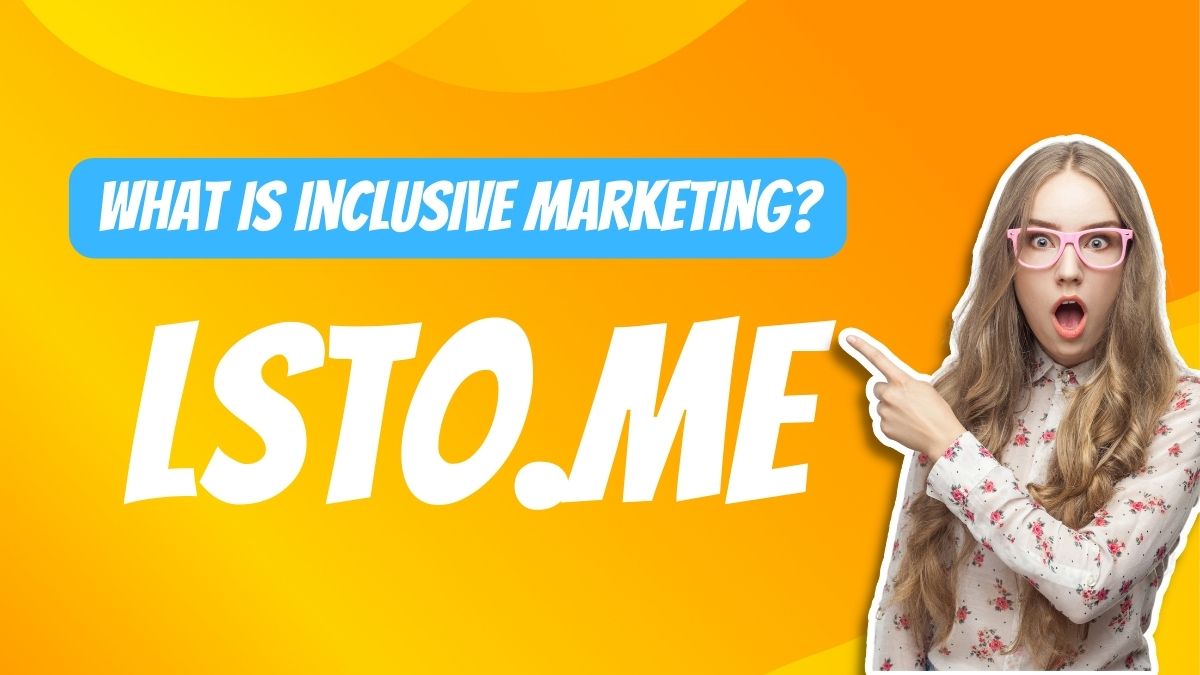
In today’s diverse and interconnected world, businesses need to go beyond traditional marketing approaches and embrace inclusive marketing strategies. Inclusive marketing involves creating campaigns and content that reflect and resonate with a wide range of individuals, regardless of their backgrounds, identities, or abilities. In this blog post, we will delve into the concept of inclusive marketing, explore its importance, and provide actionable tips to help businesses effectively implement inclusive marketing practices.
1. Understanding Inclusive Marketing:
Inclusive marketing is about creating a sense of belonging for everyone, regardless of their background, identity, or beliefs. It goes beyond targeting a specific demographic or niche and aims to create an environment that is welcoming to all. In today’s diverse world, inclusive marketing has become more important than ever before.
Inclusive marketing involves using language and imagery that is representative of different cultures and identities. This means being mindful of the words we use and the images we portray in our marketing campaigns. It also means acknowledging and celebrating diversity in all its forms, whether it be race, ethnicity, religion, gender identity, or sexual orientation.
By adopting an inclusive marketing approach, companies can build stronger relationships with their customers by showing that they care about them as individuals. They can also tap into new markets by appealing to demographics that may have been overlooked in the past.
2. Embrace Diversity in Visuals and Representation:
Visual representation plays a crucial role in inclusive marketing. Ensure that your marketing materials, including advertisements, images, and videos, feature a diverse range of individuals from different ethnicities, genders, ages, body types, and abilities. Avoid reinforcing stereotypes and actively seek to promote inclusivity by showcasing real people who can authentically connect with your target audience.
3. Use Inclusive Language:
Language is a powerful tool that can either include or exclude individuals. Review your marketing copy and ensure that it uses inclusive language that respects and reflects the diversity of your audience. Avoid gendered or exclusionary language and opt for more inclusive terms that are respectful and inclusive of all individuals.
4. Understand and Address Intersectionality:
Recognize that individuals have multiple identities and experiences that intersect and influence their perspectives. Consider the intersectionality of race, gender, sexuality, disability, and other factors when creating marketing campaigns. Take the time to understand the unique challenges and experiences faced by different communities and ensure that your marketing efforts are sensitive and inclusive.
5. Collaborate with Diverse Voices:
Include diverse perspectives in your marketing campaigns by collaborating with individuals from different backgrounds. Partner with influencers, content creators, or community leaders who can authentically represent and connect with various communities. This collaboration ensures that your marketing messages are genuine and resonate with a broader audience.
6. Listen and Engage with Your Audience:
Engage in active listening and open dialogue with your audience. Encourage feedback and create opportunities for individuals to share their experiences and perspectives. This feedback can provide valuable insights that help you refine your marketing strategies and ensure inclusivity.
7. Continuous Education and Evaluation:
Inclusive marketing is an ongoing process that requires continuous education and evaluation. Stay updated on cultural trends, social issues, and evolving language to avoid unintentional harm or exclusion. Regularly assess your marketing campaigns to ensure they align with your inclusive marketing goals and make adjustments as necessary.
Conclusion:
Inclusive marketing is not only a moral imperative but also a smart business strategy. By embracing diversity, being mindful of representation, using inclusive language, understanding intersectionality, collaborating with diverse voices, engaging with your audience, and continuously educating yourself, you can create marketing campaigns that resonate with a wider audience, foster a sense of belonging, and build long-lasting relationships based on trust and inclusivity. By embracing inclusive marketing, you can position your brand as one that truly understands and values its diverse customer base.




